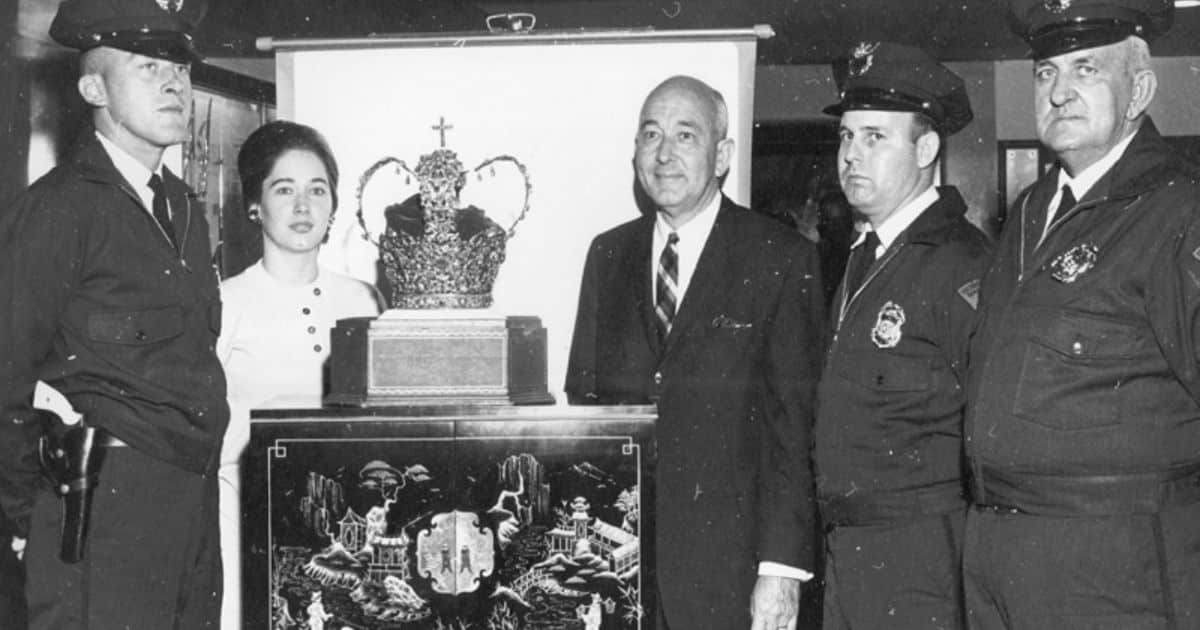In the vast landscape of American business, some family-run enterprises have withstood the test of time, like ancient oaks weathering countless storms. Discovering the oldest family-run business in the US is a journey that unveils the endurance, adaptability, and legacy of these remarkable establishments. This article delves into the roots of longevity, the challenges of succession planning, and the delicate balance between innovation and tradition. Join us as we explore the secrets behind the enduring success of historic family businesses.
Key Takeaways
- Family-run businesses have a long and rich history in the United States, dating back to the country’s earliest days of colonization.
- Many iconic American brands are still owned and operated by the same families that started them generations ago, showcasing the enduring legacy of family-run businesses.
- Family businesses have shown remarkable adaptability and resilience over time, embracing professional management practices, diversifying their operations, and implementing succession planning based on merit and external leadership.
- The long-term success of family-run businesses is attributed to factors such as clear vision and strategy, strong leadership and management, continuous adaptation, generational knowledge transfer, embracing technology, and fostering a culture of trust, loyalty, and shared purpose.
The Origins of Family-Run Businesses in America
The history of family-run businesses in America dates back to the country’s earliest days of colonization. From the establishment of the first English settlements in the 17th century, families played a crucial role in shaping the economic landscape of the New World. These family-run businesses were often small-scale operations that provided essential goods and services to the local community. They ranged from farms and mills to blacksmith shops and general stores.
Over time, as the country grew and industrialization took hold, family-run businesses adapted and evolved to meet the changing needs of society. Today, they continue to thrive, with many iconic American brands still being owned and operated by the same families that started them generations ago. These businesses foster a sense of belonging and continuity, as they pass down traditions, values, and expertise from one generation to the next.
Early Pioneers: Exploring the Roots of Longevity
Early pioneers in the United States laid the foundation for long-lasting enterprises that continue to thrive today. These trailblazers had a vision, determination, and resilience that allowed them to establish family-run businesses that have stood the test of time. Some of these early pioneers include:
- The Stroh Brewery Company: Founded in 1850 in Detroit, Michigan, by Bernhard Stroh, this brewery has been passed down through six generations of the Stroh family. Despite facing challenges such as Prohibition, the company has managed to adapt and remain a prominent player in the beer industry.
- C.F. Martin & Co.: Established in 1833 by Christian Frederick Martin, this guitar manufacturer in Nazareth, Pennsylvania, has been handed down through the Martin family for over 180 years. Known for their exceptional craftsmanship, Martin guitars are highly regarded by musicians worldwide.
- James Smith & Sons Umbrellas: Founded in 1830 in London, England, by James Smith, this umbrella shop was later moved to New York City in 1867. Today, it is operated by the fifth generation of the Smith family and continues to provide high-quality, handcrafted umbrellas.
These family-run businesses exemplify the enduring legacy of early pioneers who paved the way for future generations to build successful enterprises that foster a sense of belonging and tradition.
Generational Success: How Family Businesses Have Adapted Over Time
Over the course of generations, family businesses have shown remarkable adaptability and resilience, allowing them to thrive and succeed in changing economic landscapes. These businesses have evolved to meet the demands of the times, embracing new technologies, diversifying their offerings, and implementing innovative strategies to stay competitive. Their ability to navigate challenges and embrace change has been key to their longevity and continued success.
Evolution of Family Businesses
Family businesses have undergone significant changes and adaptations over time. As the world evolves, so do the dynamics of family businesses. Here are three key aspects that highlight the evolution of family businesses:
- Professionalization: In the past, family businesses were often run in an informal and unstructured manner. However, to stay competitive in today’s business landscape, family businesses have embraced professional management practices. They have implemented governance structures, defined roles and responsibilities, and hired external professionals to bring in expertise.
- Diversification: Historically, family businesses focused on a single industry or product. However, to mitigate risks and capitalize on new opportunities, many family businesses have diversified their operations. They have expanded into different industries or markets, allowing them to adapt to changing customer demands and economic conditions.
- Succession Planning: Succession planning has always been a critical aspect of family businesses. However, the approach to succession planning has evolved over time. Instead of automatically passing the business down to the eldest son, many family businesses now consider merit-based succession, where the most qualified family member takes the reins or even external professionals are brought in to lead the business.
These changes reflect the adaptability and resilience of family businesses as they strive to thrive in a rapidly changing business environment.
Longevity and Adaptability
Longevity and adaptability are key characteristics that enable family businesses to navigate and succeed in an ever-changing marketplace. Family businesses that have stood the test of time have often done so by continuously evolving and adapting their strategies and operations. They have the ability to preserve their core values and traditions while embracing innovation and change. By doing so, these businesses are able to meet the evolving needs and preferences of their customers, and stay competitive in the market.
Their ability to maintain strong family ties and a sense of belonging also contributes to their longevity and success. By fostering a culture of trust, loyalty, and shared purpose, family businesses can attract and retain talented employees who are committed to the long-term success of the business. Additionally, family businesses often have a deep understanding of their customers’ needs and preferences, as they have built long-standing relationships with them over generations.
This enables them to deliver personalized and tailored products and services, which enhances customer loyalty and satisfaction. In conclusion, longevity and adaptability are crucial for family businesses to thrive in today’s ever-changing marketplace, and their ability to do so is greatly influenced by their sense of belonging and strong family ties.
Uncovering the Secrets to Longevity in Business
In order for a business to achieve longevity, there are several key factors that contribute to its success. These include having a clear vision and strategy, maintaining strong leadership and management, and continuously adapting to changing markets and customer needs. Additionally, the transfer of generational knowledge within family businesses can also play a crucial role in their long-term survival and growth.
Key Success Factors
One of the key success factors for the oldest family-run business in the US is its ability to adapt to changing market conditions. This business, which has been passed down through multiple generations, has survived for centuries by staying relevant and evolving with the times. Here are three ways in which this business has successfully adapted:
- Embracing technology: The business has leveraged technological advancements to streamline operations, improve efficiency, and reach a wider customer base. They have embraced e-commerce, digital marketing, and automated processes to stay competitive in the modern market.
- Diversifying product offerings: In order to meet changing customer demands and stay ahead of the competition, the business has expanded its product range. By offering new and innovative products, they have been able to attract new customers and retain existing ones.
- Investing in talent: The business recognizes the importance of having a skilled and motivated workforce. They invest in training and development programs to ensure their employees have the necessary skills to adapt to changing market conditions. This not only helps the business stay competitive but also fosters a sense of belonging and loyalty among employees.
Generational Knowledge Transfer
The successful transmission of knowledge from one generation to the next is crucial for the continued growth and adaptability of a long-standing organization. In the context of family-run businesses, this transfer of knowledge becomes even more significant as it ensures the preservation of family values, traditions, and business strategies. The process of generational knowledge transfer involves passing down not only technical skills and expertise but also the intangible aspects of running a business, such as decision-making, problem-solving, and leadership.
It requires open communication, mutual respect, and a willingness to learn and adapt from both the older and younger generations. By successfully transferring knowledge from one generation to the next, family-run businesses can maintain their sense of identity and belonging while also embracing new ideas and innovations that can drive their continued success.
Adaptation to Changing Markets
To remain competitive in today’s dynamic and ever-changing markets, organizations must continuously adapt their strategies and offerings to meet the evolving needs and preferences of their customers. This requires a deep understanding of market trends, customer preferences, and technological advancements. Here are three key strategies that organizations can employ to successfully adapt to changing markets:
- Conduct market research: Regularly gather information about the market, competitors, and customer preferences to identify emerging trends and opportunities. This will help organizations make informed decisions and develop products and services that align with customer needs.
- Embrace innovation: Embracing innovation allows organizations to stay ahead of the curve and meet the changing demands of the market. This can involve investing in research and development, exploring new technologies, and fostering a culture of creativity and experimentation.
- Foster customer-centricity: Prioritize the customer experience by actively listening to customer feedback, anticipating their needs, and delivering personalized solutions. By putting the customer at the center of all decision-making processes, organizations can ensure that their offerings remain relevant and competitive.
As organizations adapt to changing markets, they are better positioned to survive economic downturns. In the subsequent section, we will explore how family businesses have weathered the storms of economic downturns and emerged stronger.
Surviving Economic Downturns: How Family Businesses Have Weathered the Storms

Family businesses have demonstrated their resilience by successfully navigating through economic downturns. These businesses, often built on generations of hard work and dedication, have shown the ability to adapt and survive even during the toughest of times. A prime example of this is the oldest family-run business in the US, Zildjian Company.
Founded in 1623, Zildjian has weathered numerous economic crises and has emerged stronger each time. Their ability to innovate and diversify their product offerings has allowed them to maintain a steady stream of revenue, even during economic downturns. The table below highlights some key family businesses that have successfully survived economic downturns, showcasing their longevity and adaptability.
| Company | Founded | Industry | Economic Downturn Survived |
|---|---|---|---|
| Zildjian Company | 1623 | Musical Instruments | Great Depression, Recession of 2008 |
| Gekkeikan Sake Co., Ltd. | 1637 | Beverages | Various economic crises |
| Hoshi Ryokan | 718 | Hospitality | Multiple economic downturns |
| Kongō Gumi | 578 | Construction | Multiple economic crises |
| Chateau de Goulaine | 1000 | Wine | Various economic downturns |
These family businesses have not only survived economic downturns but have also thrived, proving that their commitment to their craft and their ability to adapt are key factors in their success. Their stories serve as an inspiration to all entrepreneurs and highlight the importance of perseverance and resilience in the face of adversity.
Passing the Torch: The Challenges of Succession Planning
Founded in 1623, Zildjian Company has successfully navigated economic downturns and is now faced with the challenge of succession planning. As one of the oldest family-run businesses in the United States, Zildjian understands the importance of preserving its legacy and ensuring a smooth transition of leadership. The company has identified three key challenges in succession planning:
- Maintaining family harmony: Handing over the reins to the next generation can sometimes lead to conflicts and power struggles within the family. Zildjian recognizes the need for open communication and a shared vision to maintain family unity.
- Developing next-generation leaders: Identifying and grooming the right individuals to take on leadership roles requires a careful assessment of skills, capabilities, and commitment. Zildjian invests in training programs and mentorship to prepare the next generation for the challenges ahead.
- Balancing tradition and innovation: Zildjian’s success is built on a rich heritage and traditional craftsmanship. However, staying relevant in a rapidly changing market requires embracing innovation and adapting to new technologies. Finding the right balance between old and new is crucial for the company’s continued success.
Successfully navigating these challenges will ensure that Zildjian Company continues to thrive for generations to come, preserving its legacy while embracing the opportunities of the future.
Innovations and Traditions: Balancing Old and New in Family-Run Businesses
As family-run businesses navigate the ever-changing business landscape, finding the right balance between innovation and tradition becomes imperative. The ability to adapt and embrace new technologies and practices while preserving the core values and traditions that have been the foundation of the business is crucial for long-term success. This delicate balancing act requires a thoughtful approach that combines the wisdom and experience of previous generations with the fresh perspectives and ideas of the younger generation.
Innovations can bring new opportunities for growth and efficiency, allowing family-run businesses to stay competitive in the market. However, it is important to strike a balance by ensuring that these innovations align with the values and culture of the business. By successfully integrating new ideas and technologies while staying true to their roots, family-run businesses can foster a sense of belonging and continuity for both their employees and customers.
Transitioning into the subsequent section about the impact of family values on longevity in business, the ability to strike this balance is influenced by the values and principles that have been passed down through generations.
The Impact of Family Values on Longevity in Business
The longevity of a business is greatly influenced by the values and principles that have been instilled and upheld by successive generations. These values not only guide the decision-making process but also shape the company’s culture and reputation. Here are three ways in which family values impact the longevity of a business:
- Continuity: Family-run businesses often prioritize long-term goals over short-term gains. This focus on continuity ensures that the business remains stable and sustainable, even during challenging times.
- Trust and loyalty: Family values emphasize trust and loyalty, both among family members and with customers and employees. This fosters strong relationships, leading to customer loyalty and employee retention, which are vital for the long-term success of a business.
- Ethical standards: Family businesses tend to have a strong ethical compass, built on a foundation of integrity and fairness. This commitment to ethical practices enhances the company’s reputation and builds trust with stakeholders.
Preserving Legacy: How Historic Family Businesses Continue to Thrive
Preserving their rich heritage and adapting to evolving markets, historic family businesses demonstrate resilience and longevity in a dynamic business environment. These businesses are characterized by their ability to maintain a sense of continuity while also embracing change. Through generations, family businesses have passed down their values, traditions, and knowledge, allowing them to thrive in an ever-changing market. They have built a legacy that goes beyond mere profit-making; it represents a sense of belonging and identity for both the family members involved and the communities they serve.
These businesses understand the importance of preserving their history and actively engage in strategies that allow them to adapt and remain relevant. By combining traditional practices with innovation, they ensure their continued success and contribute to the overall economic growth and stability of their regions.
Frequently Asked Questions
How Many Family-Run Businesses Are There in the Us?
There is no exact number of family-run businesses in the US, as they range from small local enterprises to large corporations. However, family businesses make up a significant portion of the US economy, contributing to job creation and economic growth.
What Are the Common Challenges That Family-Run Businesses Face?
Family-run businesses often face unique challenges, such as succession planning, conflicts between family members, and balancing personal and professional relationships. These challenges can impact the long-term sustainability and success of the business.
How Do Family-Run Businesses Pass on Their Traditions and Values to the Next Generation?
Family-run businesses pass on their traditions and values to the next generation through mentorship, apprenticeship, and family involvement. This ensures continuity and preservation of the business’s unique identity and culture, contributing to its long-term success and sustainability.
What Types of Industries Are Most Commonly Associated With Family-Run Businesses?
Family-run businesses are prevalent across various industries, including retail, manufacturing, agriculture, and hospitality. These businesses often benefit from the continuity and commitment of multiple generations, as they strive to uphold their traditions, values, and entrepreneurial spirit.
Are There Any Specific Strategies or Practices That Successful Family-Run Businesses Employ to Ensure Their Long-Term Success?
Successful family-run businesses employ specific strategies and practices to ensure their long-term success. These include effective communication, succession planning, adaptability to changing market conditions, and a strong emphasis on building and maintaining relationships with customers, employees, and stakeholders.
Conclusion
In conclusion, the oldest family-run business in the United States has persevered through generations, adapting to changing times and weathering economic downturns. These businesses have successfully passed the torch to future generations, balancing old traditions with new innovations. The longevity of these establishments can be attributed to their strong family values and commitment to preserving their legacy. As we reflect on their remarkable resilience, we are reminded of the enduring power of family-run businesses and the emotional connection they evoke within us.








